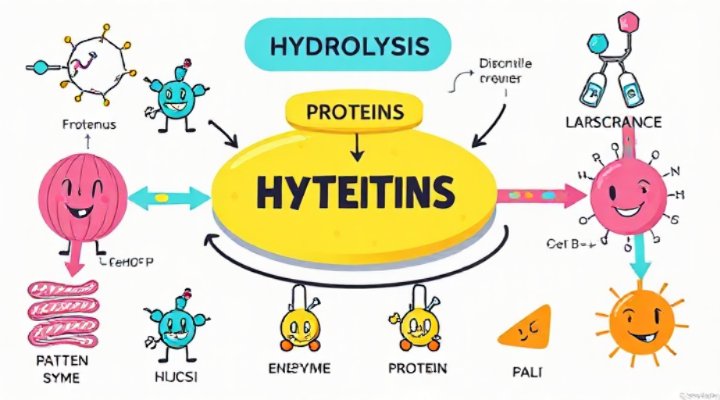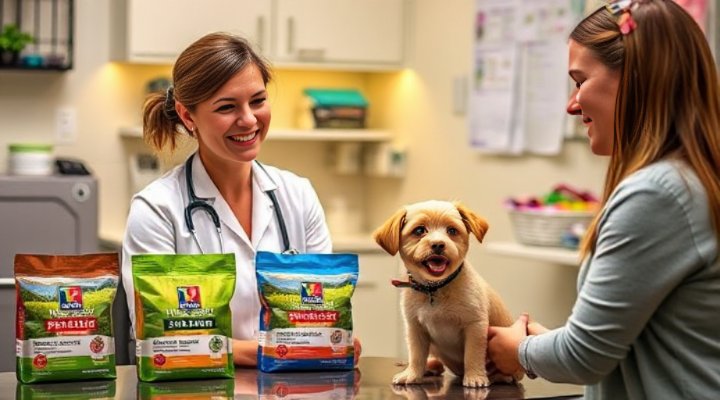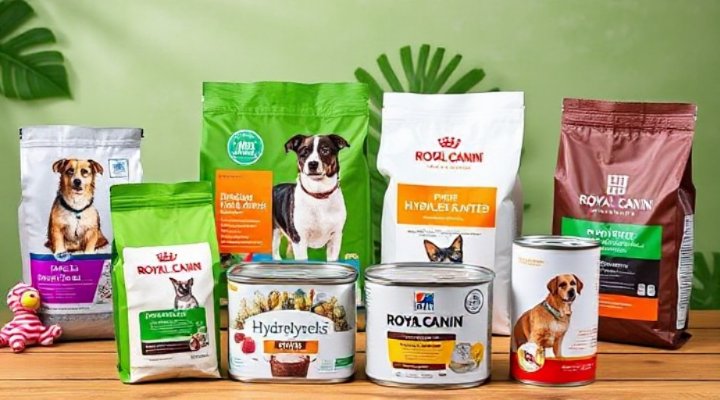In summary, hydrolyzed protein dog food offers a targeted approach to managing pet allergies and digestive issues, making it a valuable option for many dog owners. This specialized diet works by breaking down proteins into smaller components, which are less likely to trigger immune responses. Therefore, it’s particularly beneficial for dogs with sensitivities, as it promotes easier digestion and overall well-being. Above all, consulting with a veterinarian is crucial to determine if this food is right for your furry friend.

What is Hydrolyzed Protein Dog Food?
Hydrolyzed protein dog food is a type of diet where proteins are chemically broken down into smaller peptides through a process called hydrolysis. Consequently, this reduces the molecular size, making it easier for dogs to digest and less likely to cause allergic reactions. For example, common ingredients like chicken or beef are hydrolyzed to minimize immune system triggers. In other words, it’s like pre-digesting the food for your pet, ensuring they get the nutrients without the hassle. Moreover, this process is similar to how some human foods, like infant formula, are treated for sensitivity. If you’re exploring other dietary options, you might find our guide on Unkibble for Dogs with Allergies helpful for alternative solutions.

Benefits of Hydrolyzed Protein for Dog Allergies
One of the primary advantages of hydrolyzed protein dog food is its ability to reduce allergic responses. Since the proteins are broken down, the immune system is less likely to recognize them as threats, leading to fewer symptoms like itching or gastrointestinal upset. For instance, many dogs experience relief from skin conditions within weeks of switching. Additionally, improved digestion means better nutrient absorption, which supports overall health. Similarly, this can enhance your dog’s energy levels and coat quality. Importantly, always introduce new food gradually to avoid issues; check out our article on How to Transition Your Pet to New Food for tips.

How Hydrolyzed Protein Supports Digestion
Hydrolyzed protein dog food is designed for easy digestion, which is especially beneficial for dogs with sensitive stomachs. The smaller protein molecules require less effort to break down, reducing the risk of bloating, gas, or diarrhea. As a result, dogs often show improved stool quality and comfort. Furthermore, this can prevent nutrient deficiencies by ensuring that vitamins and minerals are properly absorbed. For example, dogs with chronic digestive issues might find significant relief. On the other hand, it’s essential to choose a high-quality brand; resources like the FDA’s Pet Food Guidelines provide valuable insights into safety standards.
Choosing the Right Hydrolyzed Protein Dog Food
Selecting the best hydrolyzed protein dog food involves considering factors like ingredient quality, brand reputation, and your dog’s specific needs. Look for products that use high-quality sources and have undergone rigorous testing. For instance, brands recommended by veterinarians often offer reliable options. Moreover, reading reviews and consulting with a professional can guide your decision. In addition, compare different types; our review of Farmers Fresh Dog Food might offer insights into other healthy choices. Always ensure the food meets AAFCO standards for complete nutrition.

Personal Experience with Hydrolyzed Protein Diets
From my own experience, switching my dog to a hydrolyzed protein diet was a game-changer. He had struggled with itchy skin and occasional stomach upsets, but within a month, his symptoms improved dramatically. His coat became shinier, and he seemed more energetic and happy. Of course, every dog is different, so it’s vital to monitor their response and adjust as needed. Meanwhile, sharing stories with other pet owners can provide encouragement and tips. For further reading, the AVMA’s Nutrition Resources offer expert advice on pet diets.
Common Misconceptions About Hydrolyzed Protein Food
Some people believe that hydrolyzed protein dog food is only for severely allergic dogs, but it can benefit any dog with mild sensitivities or digestive issues. Another myth is that it lacks taste, but many dogs find it palatable due to added flavors. Conversely, it’s not a cure-all and should be part of a holistic health plan. To clarify, always combine it with regular vet check-ups and a balanced lifestyle. For example, incorporating training tips from How to Train a Dog with Behavioral Issues can support overall well-being.

Integrating Hydrolyzed Protein Food into Your Dog’s Routine
Introducing hydrolyzed protein dog food should be done gradually to avoid digestive shock. Start by mixing a small amount with their current food, increasing the proportion over 7-10 days. Subsequently, observe for any adverse reactions and adjust accordingly. Additionally, ensure fresh water is always available to aid digestion. Most importantly, maintain consistency in feeding times to establish a routine. For instance, pairing this diet with exercise and mental stimulation can enhance results. If you’re considering other dietary approaches, our guide on Raw Diet for Dogs explores alternative options.
In conclusion, hydrolyzed protein dog food is an effective solution for managing allergies and improving digestion in dogs. By understanding its benefits and how to choose the right product, you can help your pet live a healthier, more comfortable life. Remember, always consult with a veterinarian for personalized advice. Keywords: hydrolyzed protein dog food, dog allergies, pet digestion, hypoallergenic dog food, canine nutrition, protein hydrolysis, dog food solutions.

